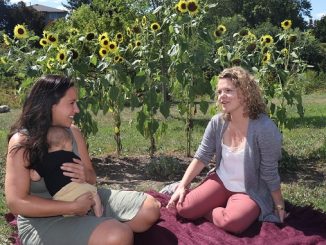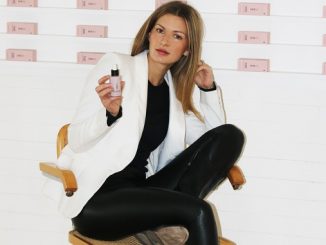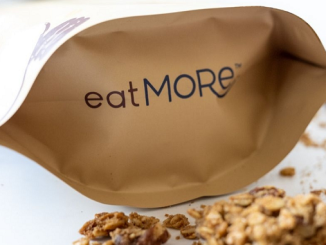The Comedy Lab is Toronto’s only black/minority-owned comedy club in Toronto, providing a space for up-and-coming comics. We had the chance to catch up with Danton Lamar, Founder of The Comedy Lab, to find out more about what they do.
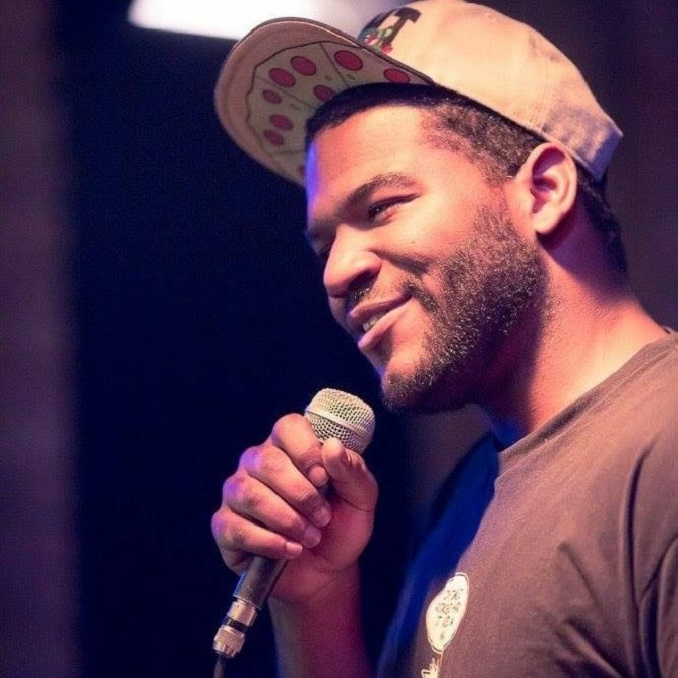
What is your business called and what does it do?
The Comedy Lab is Toronto’s only black/minority-owned comedy club in Toronto. We provide a space for up-and-coming comics to cut their teeth in a supportive environment that values their voice.
We run six shows a week Thursday – Saturday. 4 Ticketed Pro-Am shows and 2 open mics.
Our Thursday 8 pm ticketed shows rotate between different producers. They are followed by our Thursday Night Mics open mic at 10.
Friday is Broken Record Comedy at 8 pm and Friday Night Mics at 10.
The last Friday of the month is our They’dies Night Mics – a Women and Non-binary focused open mic.
Our ticketed shows feature more diverse talent than any other club.
Our open mics are known as a safe space for everyone to come to try material in an inclusive community.
What made you want to do this work?
I have always wanted to create my own channels to highlight minority voices and the Comedy Lab is my first. Before opening the club, I produced shows in Germany, Holland, The Czech Republic, the US, and Russia. I started my career in Beijing, China, in 2015. The clubs I started in had people from around the world on every lineup, and that is where it became my normal. As I travelled and performed across Europe and Russia lineups were still diverse. These lineups were a product of their environment, whereas the monochrome lineups in Toronto were the result of classical north American racism and segregation.
Producers didn’t have malicious intent, they just often didn’t think to include other voices, because for them and society at large white male voices matter most. This sentiment lead to more white males getting more stage time than anyone else and more opportunities because more often than not the people in charge of booking shows were white men. I don’t think most producers made their shows monochrome on purpose, but rather we tend to produce our friends and people we’ve been booked with. If you’re only ever booked with other white comics, they will be the first ones you think of when you book your show. I wanted to help break that cycle.
When I got to Toronto in 2019, I was excited about joining such a vibrant comedy scene. I found it hard to break into. I saw lineup after lineup of 3-5 straight white guys and a token. For women, LGBTQ, black, brown, or Asian comics there was only one spot unless the show was a heritage month show or specifically minority-focused. Shows like Vong Sho’s RICE Showcase, Rush Kazi’s MuJew – Muslim & Jewish Comedy Showcase, and Kenny Robinson’s nearly 30-year-running Nubian Comedy Revue were the main places to find minority heavy hitters.
Realizing this divide I wanted to create an established space that could change the status quo by promoting the diversity of our lineups and pressuring the market to change. Making inclusion the norm has been the aim since day 1.
Representation matters, which is why we actively fill our lineups with more minority and under-represented acts more consistently than any other club. Our space is one where we want everyone to feel welcome. Though we draw a firm line for hate speech, pushing the envelope is encouraged, and the audience is our barometer.
Being the only minority-owned club brings the Comedy Lab an audience that expects a variety of voices and a certain level of decorum. We are happy to provide, a home for comics who were traditionally excluded from the old boys club. The Comedy Lab is everyone’s club.
What problem did you want to solve with the business?
There were two problems I wanted to solve. First, selfishly, I wanted to get more stage time as well as have a regular location to host and produce shows.
Second, I wanted to provide a home for diverse voices to shine.
By providing a space for different voices to succeed, we pressure other clubs to diversify their lineups by changing the status quo of acceptable Toronto lineups. This city is filled with talent from all walks of life and there is no reason any club’s lineup doesn’t reflect this diversity.
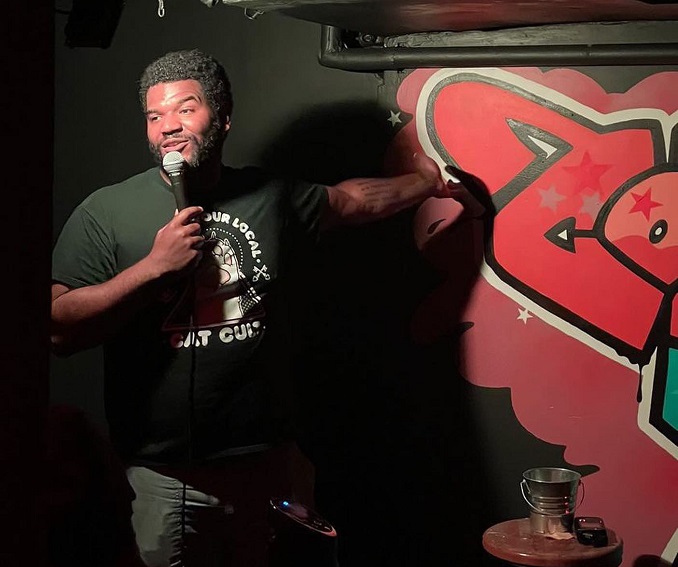
Who are your clientele/demographics?
Our audience is varied like our acts. We have 19-year-old University students sharing a table with a couple from Barrie that’s been married for 30 years.
The main thing that links our audience is the desire to have a great laugh. Travellers, business people, teachers, activists, and beyond have crossed our threshold and been met with a welcoming community.
How does your business make money? How does it work?
We make money from ticket sales, donations, and soon merch sales. We are partnered with the Lab bar who provides drinks and food to our audience.
Where in the city can we find your profession?
There are comedy clubs and shows across the city. In February, when restrictions were lifted we were one of 5 new clubs to open in 2 months.
However, the majority of the clubs and shows can be found along Bloor st. We’re one of 6 clubs to call the street home, and that excludes the shows at different bars along the strip. There are pockets across the city, a few shows in the southwest by Queen and Roncesvalles, a couple along the Danforth to the east, and a new club to the north of the city limits. Monthly shows and bar open mics litter the city bringing comedy to many neighbourhoods.
What is the best question a prospective customer could ask a member of your profession when comparing services? Give the answer as well.
If you are looking to go to a show a comic produces or have them produce a show for your company or organization, the best thing to ask is, “How many different voices will I hear at one of your shows?”
We bring a variety of diverse voices to every show we do. Representation matters therefore we make an effort to make our lineups as diverse as we can.
What is the best part about what you do? What is the worst part?
The best part of being a comedian is feeling a connection with your audience. A great show is more than just making an audience laugh. Bringing them on a journey, making them think, and sharing a moment of fun with strangers give stand-up a depth many casual fans may not notice.
The worst part is the stress of whether or not people will come to our shows.
What is your favourite joke about your own profession?
My days are long and hard. I wake up at noon and wait for nighttime.
Where can we follow you?
Instagram: Comedy Lab | Danton Lamar | Werd Entertainment | Dope Comedy Toronto
Facebook: Comedy Lab | Danton Lamar | Werd Entertainment
PAY IT FORWARD: What is another local business that you love?
Backroom Comedy Club, Broken Cage Gallery and Future’s Bistro.


